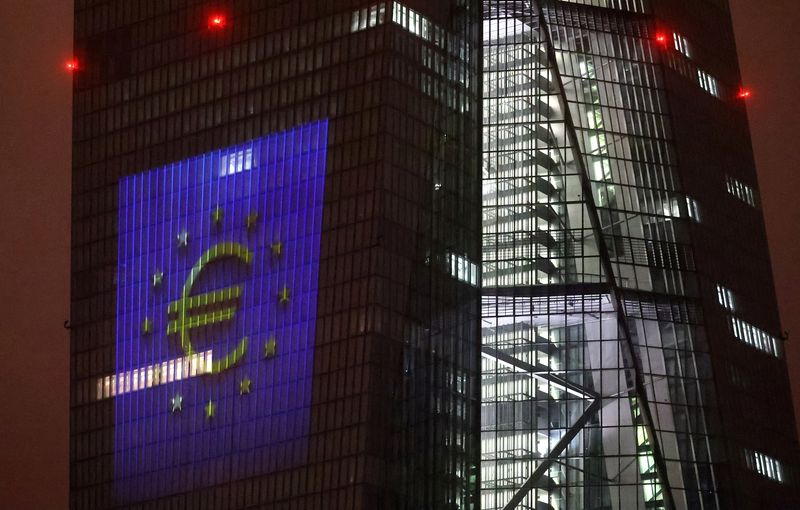Investing.com -- The European Central Bank has slashed interest rates by a quarter point at a second straight meeting on Thursday as policymakers look to address twin slowdowns in inflation and economic growth.
It is the first back-to-back borrowing cost drawdown in 13 years, and serves as a sign that the ECB has begun to pivot away from a period of interest rate hikes designed to quell elevated price growth.
Instead, the ECB has signaled that it is refocusing policy on trying to reinvigorate a sputtering Eurozone economy that has struggled to keep pace with the US for much of the last two years.
Business activity and sentiment surveys out of the region undershot estimates in September. Meanwhile, an updated inflation reading released ahead of the ECB's announcement showed that headline consumer price growth decelerated to an annualized 1.7% last month. The mark, which was initially 1.8%, is below the central bank's stated 2% target.
"The incoming information on inflation shows that the disinflationary process is well on track. The inflation outlook is also affected by recent downside surprises in indicators of economic activity," the ECB said in a statement.
The 25-basis point cut brings the rate the ECB pays out to banks for their deposits to 3.25%, widening the gap compared to the Federal Reserve. The US central bank lowered its target rate by an outsized 50 basis points last month to a range of 4.75% to 5.00%.
Meanwhile, policymakers chose to avoid laying out specific policy guidance, reiterating that it is not "pre-committing to a particular rate path" and would roll out future decisions based on its "assessment of the inflation outlook in light of the incoming economic and financial data, the dynamics of underlying inflation and the strength of monetary policy transmission."
The stance was "sensible" given the uncertainties that face the Eurozone economy, according to Mark Wall, Chief European Economist at Deutsche Bank.
However, Wall added: "[C]hances are that today’s decision represents a pivot point into a faster normalisation of monetary policy.”
In a note to clients, analysts at Capital Economics said they anticipate that upcoming economic data will support quarter-point cuts at "each of the next few meetings, at the very least."
Following the ECB's announcement, which had been widely anticipated by markets, the euro was trading roughly unchanged versus the dollar.
